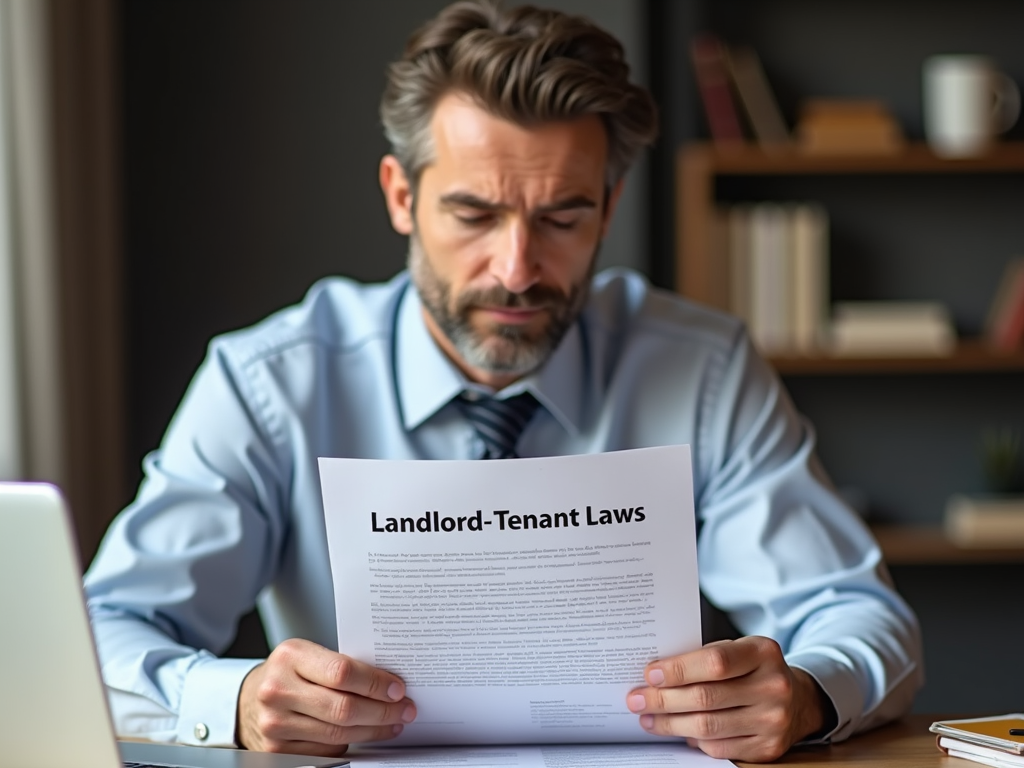Being a landlord can be rewarding, but it also comes with responsibilities. Whether you're new to renting out properties or looking to improve your skills, these top tips will help you navigate the challenges of being a landlord. From understanding local laws to writing a solid rental agreement, we'll cover everything you need to know to succeed.
As a landlord, one of the most important things you can do is familiarize yourself with the landlord-tenant laws in your area. These laws govern everything from security deposits to eviction procedures, and failing to comply can lead to legal trouble. For example, in some states, there are strict rules about how much notice you need to give before entering a tenant's unit. I once had a situation where I needed to make repairs, but I didn't give proper notice, and the tenant complained. It was a valuable lesson in the importance of knowing the law. To stay informed, regularly check your state and local government websites for updates on rental laws.

Determining the right rent price is crucial for attracting tenants and ensuring your investment is profitable. Start by researching comparable properties in your area. Look at listings on rental websites and talk to other landlords or property managers. Consider factors like location, amenities, and the condition of your property. Don't forget to account for your expenses, such as mortgage payments, property taxes, insurance, and maintenance costs. I remember when I first started, I set the rent too low because I was eager to find a tenant quickly. I ended up losing money in the long run. Now, I take the time to do thorough research and set a competitive rent price.
Screening tenants is one of the most critical steps you can take to ensure a successful rental experience. A good tenant can make your job easier, while a bad tenant can cause significant issues. Start by creating a comprehensive application that includes personal information, employment history, and references. Don't hesitate to conduct background checks, credit checks, and contact previous landlords to learn about their rental history. I once had a tenant with excellent references who ended up being difficult to work with. It taught me that sometimes gut feelings matter more than just references. Make sure to follow fair housing laws when screening applicants.
Writing a rental agreement is an essential task that every landlord must master. A well-drafted rental agreement protects both you and your tenant, outlining each party's rights and responsibilities. Include key clauses such as rent amount, security deposit details, lease term, and consequences of late payments. I always recommend consulting a legal professional while drafting the lease to ensure compliance with local laws. My experience with a poorly written agreement once resulted in confusion over maintenance responsibilities, highlighting the necessity of clear terms.
Regular maintenance is vital to keeping your property in good condition and ensuring tenant satisfaction. Create a maintenance schedule that includes routine inspections, seasonal tasks, and prompt response to tenant requests. Addressing maintenance issues swiftly can prevent small problems from turning into costly repairs. I established a good relationship with a handyman service that allows me to address repairs efficiently for my tenants, giving them peace of mind.
Handling tenant issues can be challenging, but effective communication is key. Always aim to resolve conflicts quickly and fairly. Keep a record of all communications and document tenant complaints. Establishing a clear process for handling complaints, such as having a designated contact number or email, can streamline this process. I learned the importance of staying calm and professional when dealing with complaints—this has saved me from escalated disputes.
If you’re considering renting out a room in your own home, remember to establish boundaries and clarify shared spaces with room renters. Set clear expectations regarding shared areas, noise levels, and cleaning responsibilities to avoid misunderstandings. I found that having a detailed house rule document helped me maintain a good relationship with my room renters, ensuring everyone is on the same page.
In summary, being a responsible landlord requires commitment, awareness of local laws, and strong communication skills. From screening tenants to maintaining the property, every aspect is important in ensuring a smooth rental experience. By implementing these tips, you can improve your landlord skills and provide a beneficial living environment for your tenants.